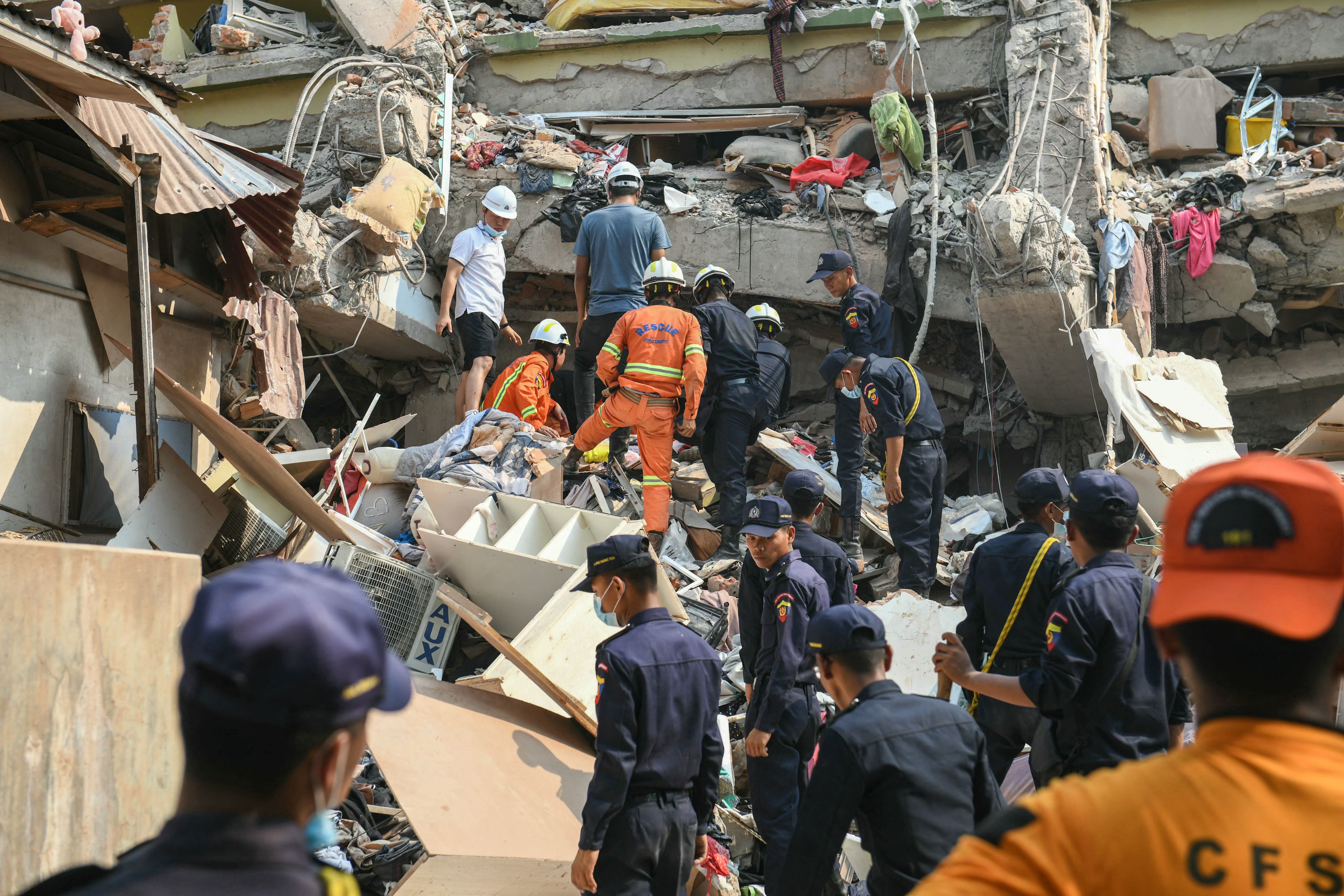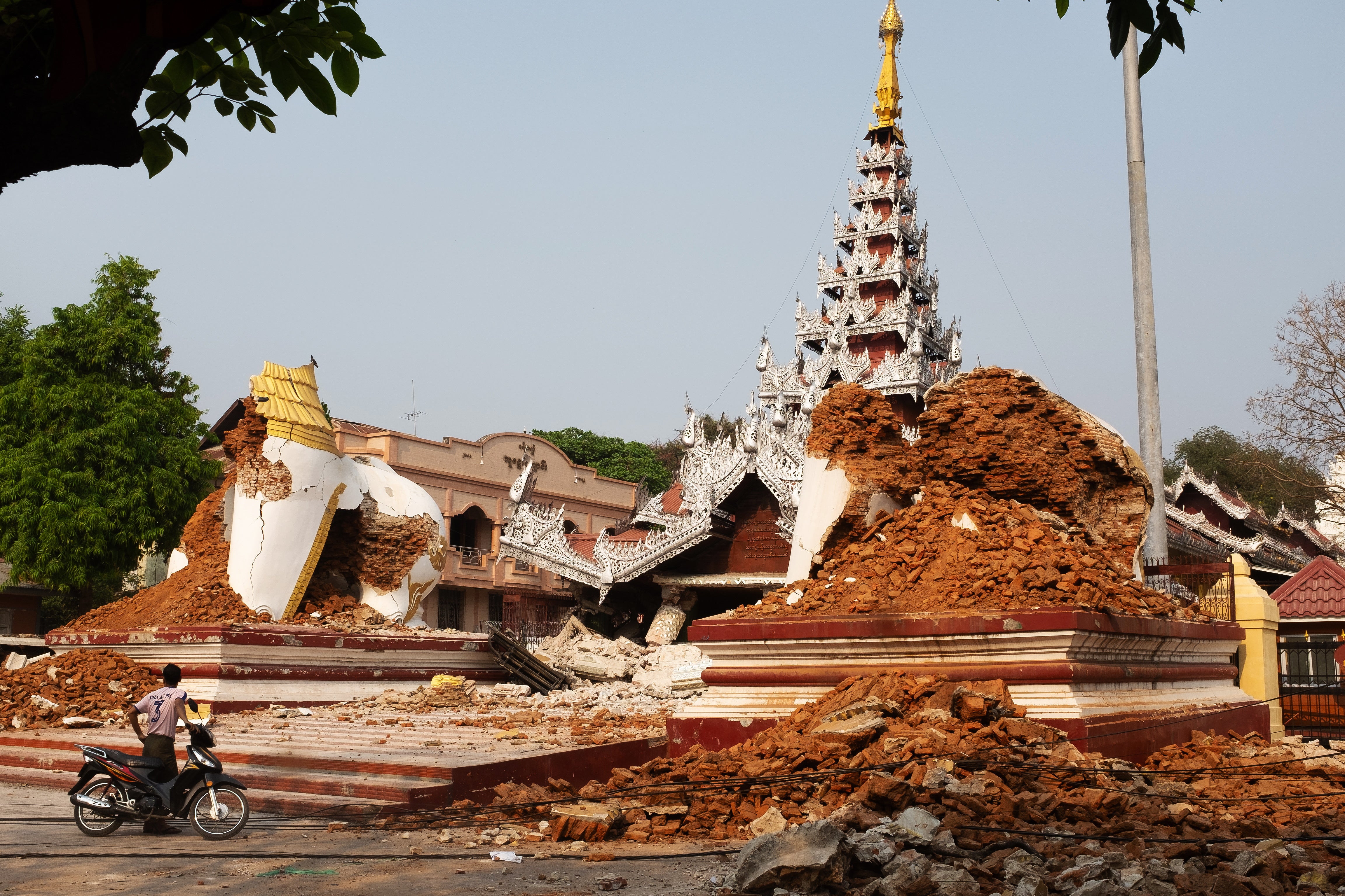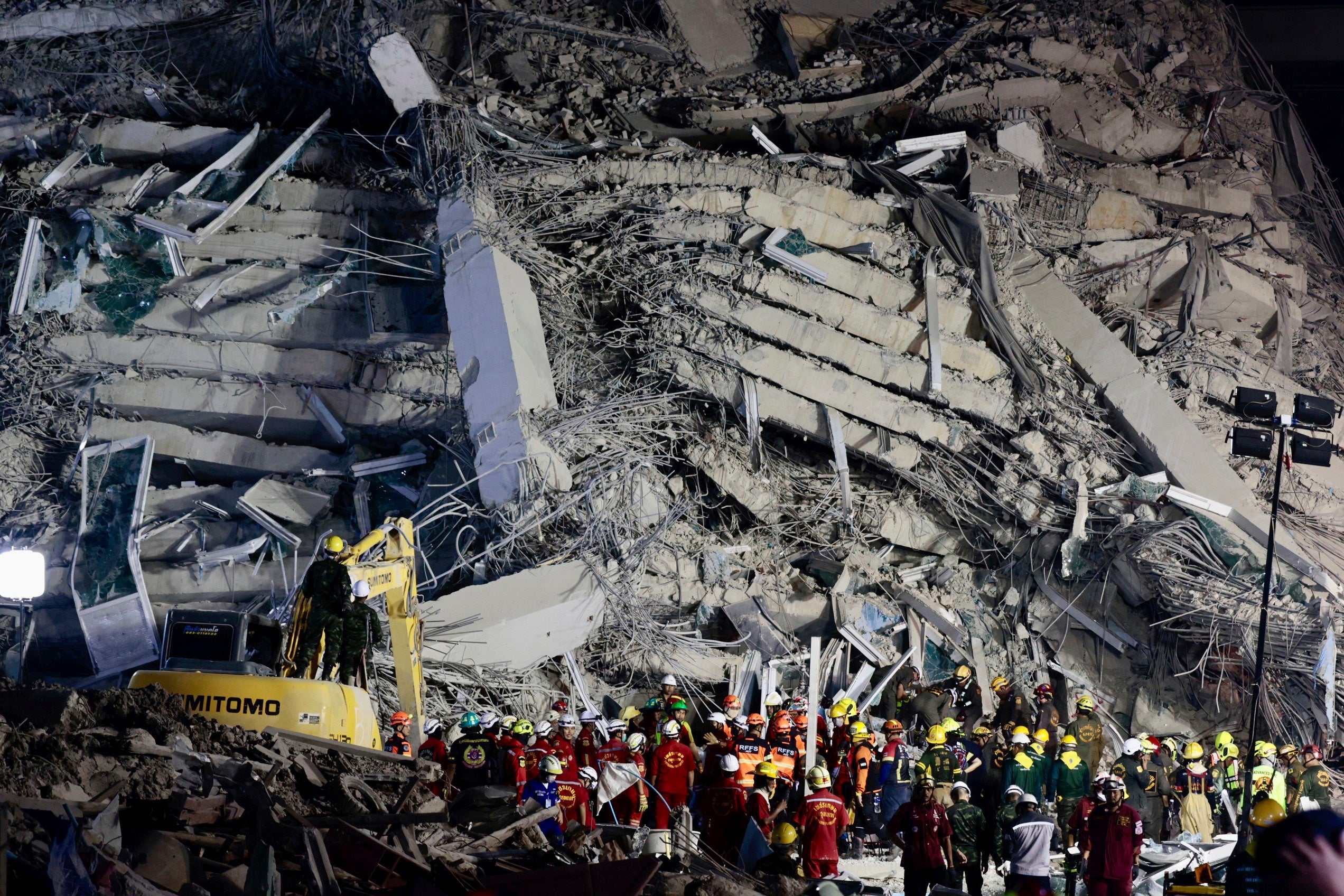Myanmar earthquake: Why experts can’t predict quakes and what to do if you’re in one
Earthquakes are more common in some areas. Here’s how to stay safe
A powerful 7.7 magnitude earthquake devastated Myanmar early Friday, with its tremors felt as far away as Bangkok, some 800 miles (1,300 kilometres) distant.
The quake inflicted widespread damage in two of Myanmar’s key cities, Mandalay and the capital, Naypyidaw, leaving a trail of destruction and claiming numerous lives.
Rescue efforts are ongoing, with teams still working tirelessly to find survivors amid the rubble of collapsed buildings.
The death toll has climbed to more than 2,000.
The earthquake’s impact extended beyond Myanmar’s borders. In Bangkok, fatalities were confirmed at three construction sites, including a high-rise building where the death toll climbed to 18 on Sunday.
Here is what to know about earthquakes and why experts can’t predict when they will strike.

What are earthquakes and why do they happen in certain parts of the world?
The Earth's crust is broken up into several pieces called tectonic plates, which fit together like a jigsaw puzzle.
This formation is “mostly stable, but along the edges they are moving”, Columbia University geophysicist Michael Steckler said.
Pressure builds up when sliding plates get stuck, increasing “very slowly for decades or for hundreds of years, and then all of a sudden the rock plates will jump", triggering shaking that causes an earthquake, Mr Steckler said.
Earthquakes typically occur along edges of tectonic plates. But their impacts may be felt in a broader region.
Earthquakes that occur in the ocean don't always attract attention, but those that occur close to where people live can cause deaths and injuries, most often from collapsed buildings.

What do scientists know about earthquakes in advance?
Scientists have a good idea of where earthquakes are likely to strike, "but we can't predict when they'll occur”, USGS seismologist Will Yeck said.
However, after the initial big earthquake, researchers are able to project that other smaller earthquakes nearby, called aftershocks, are likely.
Aftershocks are triggered “because of changes to stress in the Earth from the main shock”, Mr Yeck said.
Given the magnitude of the quake in Myanmar, “you will probably see aftershocks for the next several months”, Mr Steckler said.

What should you do if you're in a building when earthquake shaking begins?
In regions of the world with known active fault lines, including California and Japan, building codes are often designed to withstand earthquakes. But that's not true everywhere.
“If you feel shaking, the guidance depends on where you are in the world,” Mr Yeck said.
In many countries, if you're inside when an earthquake occurs, it's advisable to drop to the ground, cover your head – for example, by crawling under a desk or other sturdy structure – and hold onto that structure, he said.
Try to avoid areas near glass windows and don't use building elevators.
If you're outside, try to remain in an area away from buildings or trees that could fall.
Depending on the location, there may be secondary hazards triggered by earthquakes, such as landslides, fires or tsunamis, he said.
Join our commenting forum
Join thought-provoking conversations, follow other Independent readers and see their replies
Comments
Bookmark popover
Removed from bookmarks